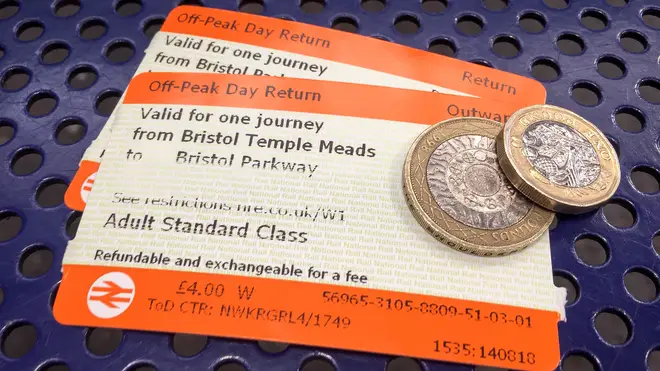
Ian Payne 4am - 7am
15 August 2022, 09:34

The Department for Transport said next year’s rise in fares will be delayed until March and will be lower than July’s retail price index.
Next year’s increase in rail fares in England will be below the current rate of inflation, the Government has announced.
Changes in regulated fares such as season tickets are traditionally implemented on the first working day of the year and based on the previous July’s retail price index (RPI), which for 2022 will be announced on Wednesday.
But the Department for Transport (DfT) said next year’s rise in fares will be delayed until March and will be lower than the RPI figure for last month.

June’s RPI was 11.8%.
An increase around that figure would add hundreds of pounds to the cost of many annual season tickets.
A DfT spokesman said: “The Government is taking decisive action to reduce the impact inflation will have on rail fares during the cost-of-living crisis, and will not be increasing fares as much as the July RPI figure.
“We are also again delaying the increase to March 2023, temporarily freezing fares for passengers to travel at a lower price for the entirety of January and February as we continue to take steps to help struggling households.”
Campaigners have been lobbying for the Government to stop using RPI to calculate the annual fare increase.

Paul Tuohy, from the Campaign for Better Transport, told the Daily Mail even a small increase to fares could price large numbers of commuters off trains altogether.
He added: “We urgently need a fares freeze for 2023.”
It comes as rail industry bosses and the Aslef union are expected to hold formal talks in the coming days after a strike on Saturday shut down large parts of the rail network.
Picket lines were set up in locations including London, Hull, Manchester and Liverpool amid disputes over jobs, pay and conditions.

Further strikes are planned for Thursday and Friday with members of the RMT and TSSA unions staging industrial action.
Earlier this year the largest rise in rail fares in nearly a decade added more than £100 to the cost of many annual season tickets.
Commuters were hit hard by the price increase of up to 3.8% in England and Wales.
Wales usually makes similar fares changes to England while the Scottish Government has not announced in plan for 2023.
Fares in Northern Ireland are set by operator Translink, which does not use RPI.